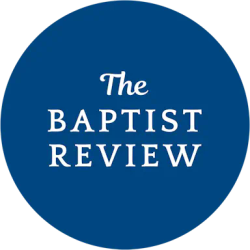I’m old enough to remember the days of the “conservative resurgence” in the 1980s and 1990s when we who held to the inspiration, inerrancy and sufficiency of the Bible fought off the leftward drift of our seminaries and institutions. Commensurate was the affirmation of the historical-grammatical hermeneutic that, among other tenets, seeks to discover authorial context and intent, understanding of the specific genre, and serious examination of the grammatical words and structure of the text.
Relative to the discussion of grammatical words and structure, the Law Amendment wrongly assumes that the New Testament explicitly utilizes the Greek noun poimen, commonly translated as pastor/shepherd, in reference to the overall leader of a local church. Sixty-four times the Holy Spirit chose either the noun presbuteros (elder - 57 occurrences) or the noun episkopos(overeer/bishop - 7 occurences) in reference to the officeholder. Certainly, this is no accident or coincidence.
There is only one usage of the noun poimen in the entire New Testament that could possibly apply to the human officeholder or overall leader of a local church, and that is found in Ephesians 4:11. Here, the context refers to gifted persons that God gave the local church (also apostles, prophets, evangelists and teachers). Some conservative scholars do consider the reference in Ephesians 4:11 to be about the “office” of the church, but many do not because there are considerable hermeneutical challenges in determining which of the five gifted persons were or are now present in a local church. Also, the grammatical construction of Ephesians 4:11 does not necessarily attach the word poimen/pastor to the didaskalos/teacher “office” as some would insist.
A guiding principle in the Greek language known as Granville Sharp’s Rule aids Greek grammarians on issues of Christology. It states that when there are two nouns preceded by one article and they are joined together by a conjunction, both nouns are considered referring to the same person. Example: Ephesians 1:3 says, “the God and Father” (ὁ θεός καί πατήρ)’. Here you see the article ‘ὁ/the’ followed by two nouns, “God” and “Father,” joined together by one conjunction, “kai/and.” A survey of academic papers notably excludes Ephesians 4:11 as an example of the proper application of Granville Sharp’s Rule. The reason: the nouns in Ephesians 4:11 are plural! It is widely accepted that Sharp’s Rule does not apply when plural nouns are used. Thus, pastor and teacher do not necessarily refer to the same person.
Others in favor of the Law Amendment point to 1 Peter 5:2: “I exhort the elders among you as a fellow elder and witness to the sufferings of Christ, as well as one who shares in the glory about to be revealed: Shepherd (verb) God’s flock among you, not overseeing out of compulsion but willingly, as God would have you; not out of greed for money but eagerly.”
Proponents point to the proximity of the nouns and verbs as proof that poimen/pastor belongs to the “office.” Yet the text twice uses the noun presbuteros, not poimen. Instead, the function of shepherding, noted by the verb poimaino, is used. This again reinforces the reality that an elder/overseer is to care for and shepherd God’s people. No one disputes that. But Paul’s or Peter’s exhortation to the elder/overseer to take care of the flock does not require that the noun form of shepherding be added to the office of elder/overseer. Just because I counsel someone doesn’t mean I’m a licensed counselor. Function and office are not always the same.
A security guard at a school’s crosswalk, whose function includes watching out for the safety of children, is not the same as the police officer sitting in his squad car a few yards away. It doesn’t make sense that the only person who can shepherd people in a church is the officeholder. Does a woman who is leading a children’s ministry “pastor” (verb poimaino) the children? Absolutely! Does she shepherd (verb poimaino) the parents, including the fathers? Absolutely! Does she pastor/shepherd (verb poimaino) the leaders, including the adult males, for instance, when she visits them in the hospital or instructs them from Scripture in leader’s meetings? Absolutely! Isn’t she carrying out the function of pastoring (verb poimaino) without holding the office? The answer is an obvious yes. And if so, the office and the function are, indeed, separate. Certainly all of those who hold the office perform a shepherding function over the whole church; however, in many of our churches not all of those who perform a shepherding function hold the office.
From as early as the 2nd century, the term or title “pastor” has certainly been given equal footing with elder and overseer. I loved it when someone from the churches I led called me pastor. I want to make it clear that I am not denigrating the term pastor, nor am I against using the term to refer to the overall leader of a local church. I am only writing to counter the claim by many who endorse the Law Amendment that there is a biblical mandate that only the male officeholder of a local church can be called or have the title pastor. In my view, and for the reasons mentioned previously, it just isn’t true.
I believe deeply in what many call “The Headship Principle,” first stated in Genesis 1 & 2: God has ordained the leaders of the home and the church to be godly, biological males. Both in the home and in the church, the male leader is complemented by females. As long as the female in this relationship is functioning under the authority of the male, headship is maintained and complementarianism is properly operative. With this as my understanding and conviction, I fully affirmed the Baptist Faith & Message 2000 when we became a cooperating church of the Southern Baptists of Texas Convention (SBTC) two decades ago, and still do. I have always considered the language of the BFM to mean that the office itself was reserved for a male, not the specific title. Until the advent of the Law Amendment, I never once thought “pastor” was a title reserved only for the officeholder, only that the office itself, regardless of title, was reserved for a man. Last year’s amendment to Article VI of the BFM, to include all three words (pastor/elder/overseer) makes it clearer that the office is what is reserved for godly males. In my view, a woman who has the title of pastor but is not considered an elder or overseer does not violate the BFM.
Many churches, such as the one in which I held the office, do not assign the title pastor to a woman because we recognize the social construct that, in the eyes of many, places it on equal footing with elder and overseer. That is our preference. But personal preference is not the same as biblical prescription. To remove a church from our convention based on the most narrow interpretation of the BFM, and on personal preference, does not seem to be the wisest decision for us to make.
The Southern Baptist Convention has recently removed churches from our fellowship that grant the office to females, and we will continue to do so. Our process for handling this is sound, fair, and effective. The Law Amendment is a bridge too far, unnecessarily dividing us by insisting that every church must adopt our preference, even though not biblically mandated.
Editor's Note: As a part of its commitment to fostering conversation within the Southern Baptist Convention, the Baptist Review may publish editorials that espouse viewpoints that are not necessarily shared by the TBR team or other contributors. We welcome submissions for responses and rebuttals to any editorials as we seek to host meaningful conversations about the present and future of our convention.

Join the Baptist Review for our Presidential Forum in Indianapolis on Monday, June 10 at 9pm. Registration is required for attendance.


